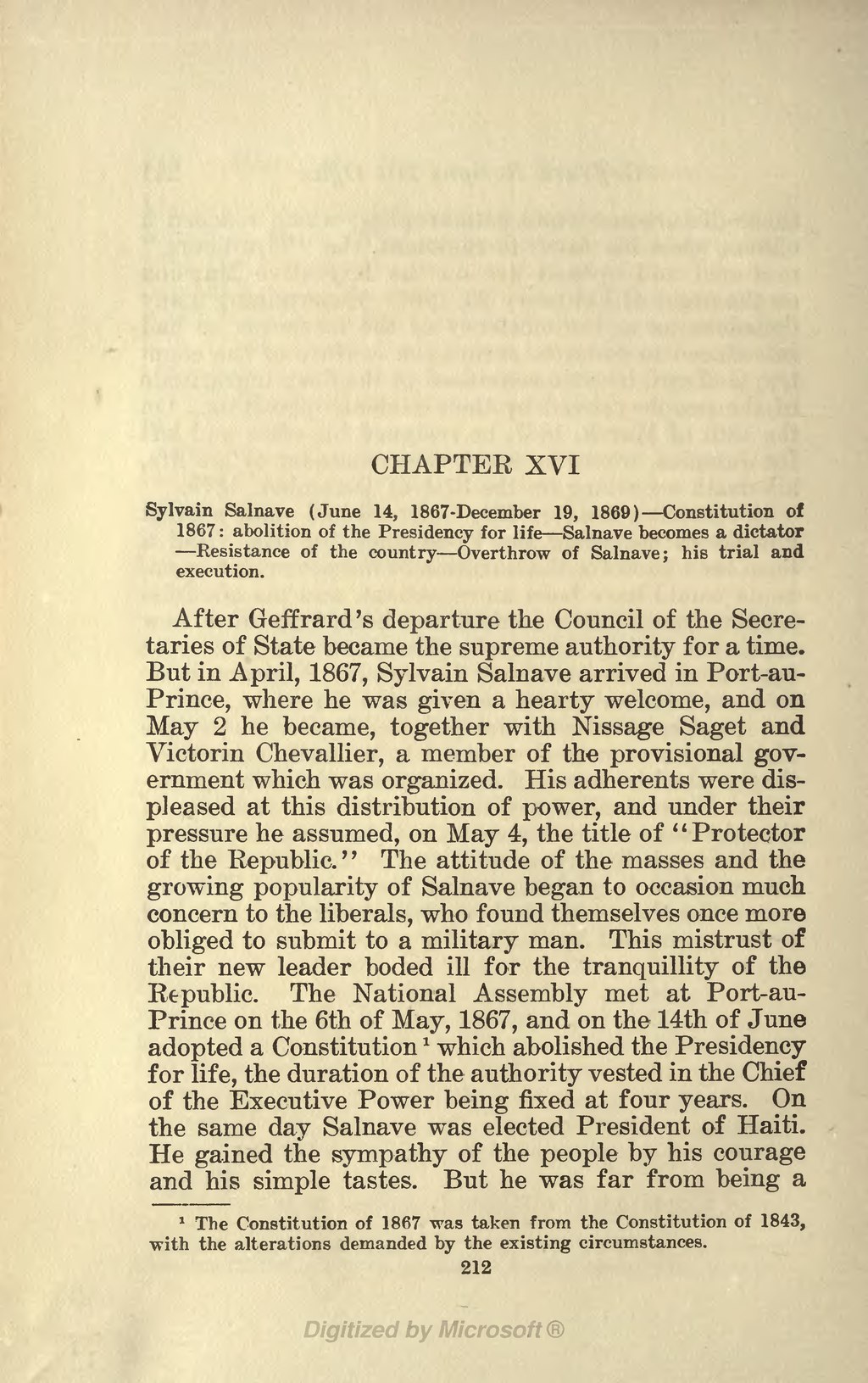CHAPTER XVI
Sylvain Salnave (June 14, 1867–December 19, 1869)—Constitution of 1867: abolition of the Presidency for life—Salnave becomes a dictator—Resistance of the country—Overthrow of Salnave; his trial and execution.
After Geffrard's departure the Council of the Secretaries of State became the supreme authority for a time. But in April, 1867, Sylvain Salnave arrived in Port-au-Prince, where he was given a hearty welcome, and on May 2 he became, together with Nissage Saget and Victorin Chevallier, a member of the provisional government which was organized. His adherents were displeased at this distribution of power, and under their pressure he assumed, on May 4, the title of "Protector of the Republic." The attitude of the masses and the growing popularity of Salnave began to occasion much concern to the liberals, who found themselves once more obliged to submit to a military man. This mistrust of their new leader boded ill for the tranquillity of the Republic. The National Assembly met at Port-au-Prince on the 6th of May, 1867, and on the 14th of June adopted a Constitution[1] which abolished the Presidency for life, the duration of the authority vested in the Chief of the Executive Power being fixed at four years. On the same day Salnave was elected President of Haiti. He gained the sympathy of the people by his courage and his simple tastes. But he was far from being a
- ↑ The Constitution of 1867 was taken from the Constitution of 1843, with the alterations demanded by the existing circumstances.
212
